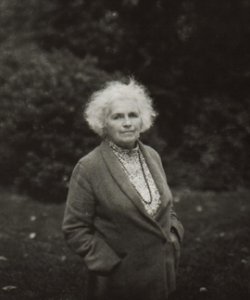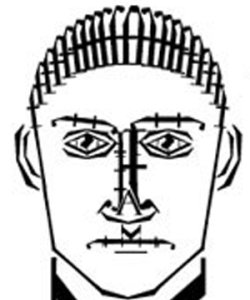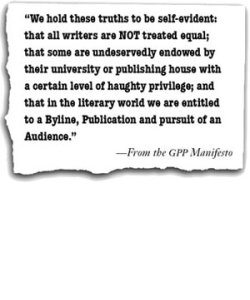Poetry Pulitzers Plural, Díaz Wins for Wao
The 2008 Pulitzer Prizes were announced yesterday, and for the first time since 1922—the year poetry was entered as a category—two poets took home the honors.
Jump to navigation Skip to content
The 2008 Pulitzer Prizes were announced yesterday, and for the first time since 1922—the year poetry was entered as a category—two poets took home the honors.
On Tuesday, the John Simon Guggenheim Memorial Foundation announced the winners of the 2008 Guggenheim Fellowship Awards. Ten poets and seven fiction writers from the United States and Canada who demonstrate "distinguished achievement in the past and exceptional promise for future accomplishment" each received grants averaging $43,157.

Celebrated short story writer and poet Grace Paley died of cancer last August at the age of eighty-four. A lifelong activist, pacifist, and an early figure in the women’s rights movement in the 1960s, Paley was one of those writers who managed to combine a public life of frequent readings and appearances in support of a range of causes with work lauded for its artistic integrity. We interviewed Paley a little more than a year before her death at her home in Thetford.

A look at select images from Men of Letters and People of Substance, a collection of author portraits created with letters from the writers' names in the typeface that best represents the style of their work.
Page One features a sample of titles we think you'll want to explore. With this installment, we offer excerpts from Beautiful Children by Charles Bock, Behind My Eyes by Li-Young Lee, and Infamous Landscapes by Prageeta Sharma.
Twelve debut poets talk about their experiences publishing first collections of poetry.
Two years after the demise of the Contemporary Poetry Series, the University of Georgia Press, in conjunction with Virginia Quarterly Review editor Ted Genoways, begins a new series with a traditional editorial approach.

A covert collective called the Guerilla Poetics Project takes poetry distribution to another level by stashing free broadsides in libraries and bookstores.
With the publication of his ninth collection, poet Bin Ramke has emerged as one of the avant-garde's treasured half-secrets.